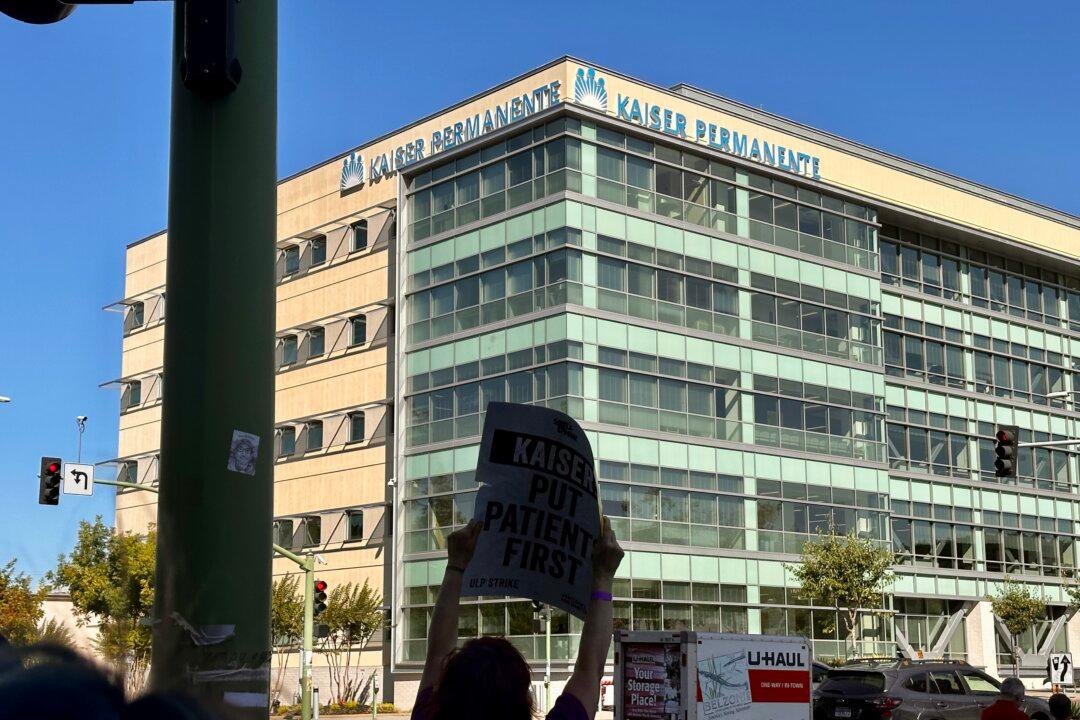Southern California Kaiser Permanente mental health therapists plan to go on strike Oct. 21 after union negotiations with the large medical provider stalled over better pay and more staffing.
About 2,400 psychologists, social workers, psychiatric nurses, addiction medicine counselors, and marriage and family therapists from San Diego to Bakersfield are expected to walk off their jobs at the company’s 16 hospitals and nearly 200 medical offices.





